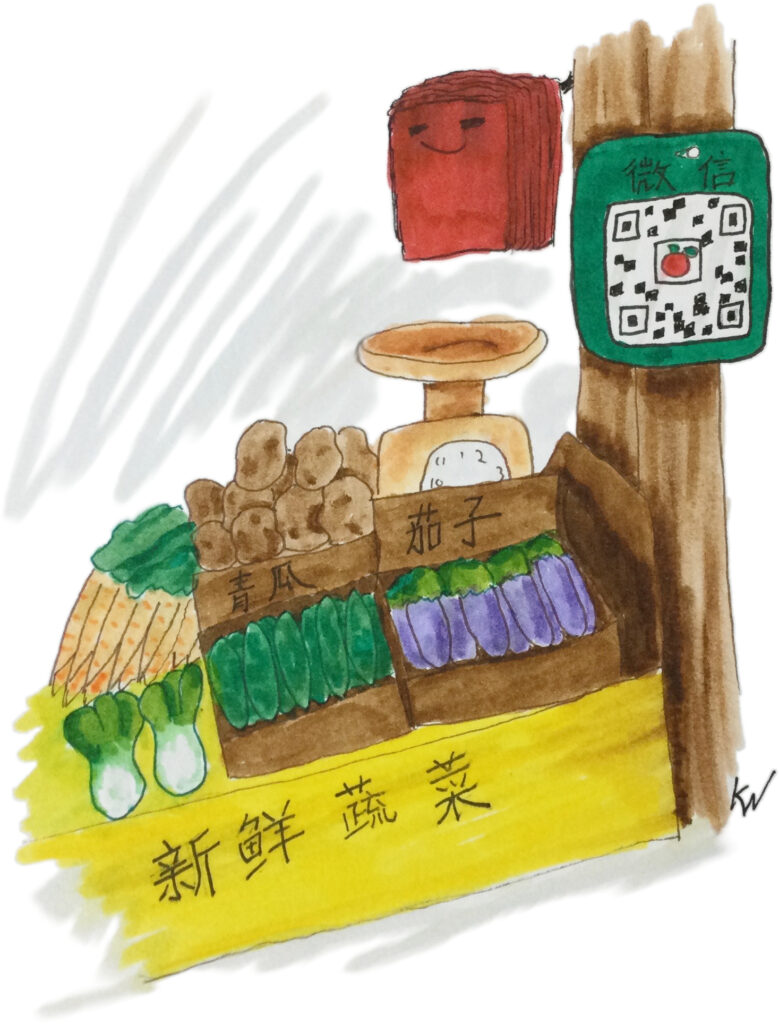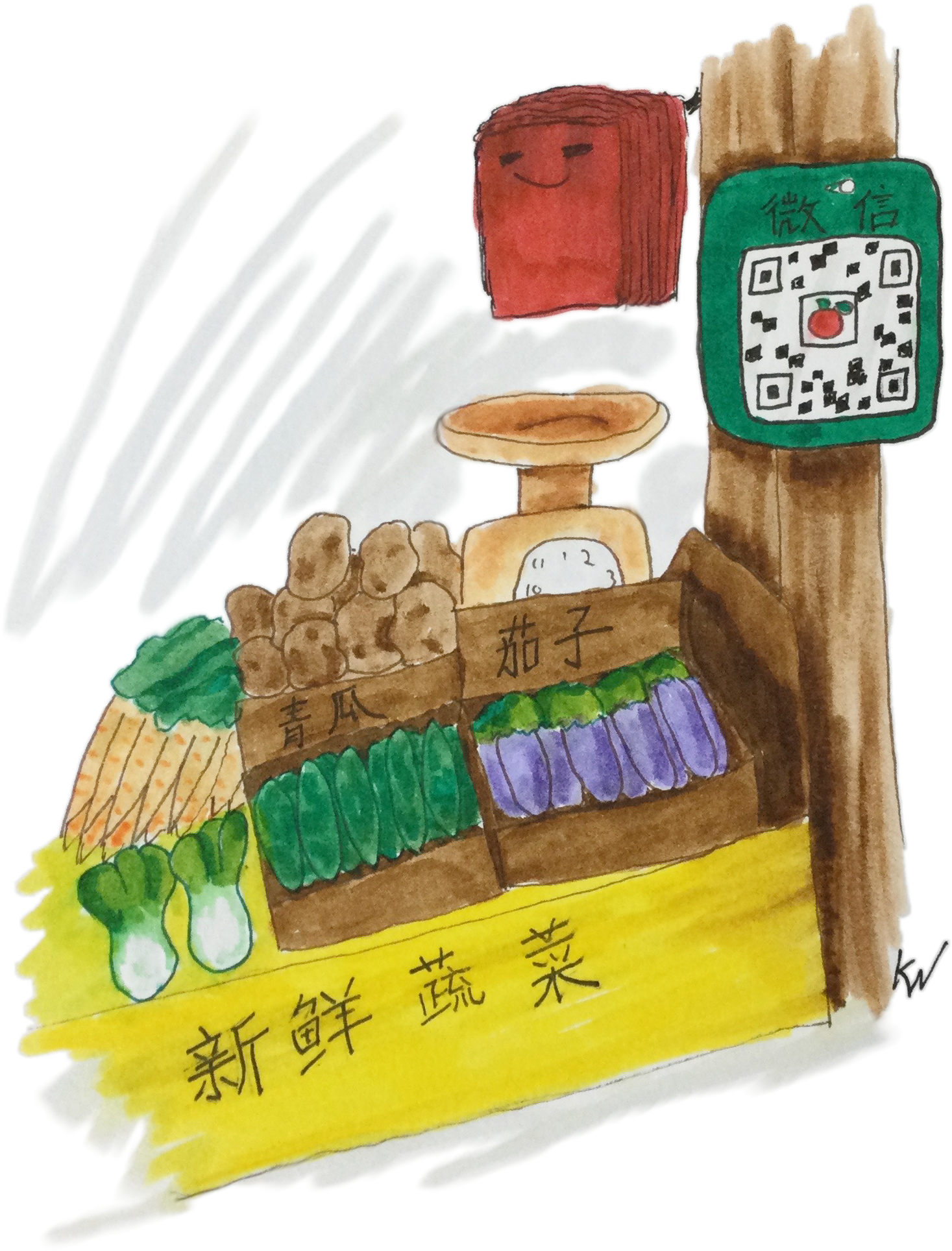Inspiration Words: Metal and Coin
The old woman walked slowly toward the piles of vegetables in the wet market, her empty metal basket clattering over the brick sidewalk as she pulled it behind her. Once inside, she picked through the piles of green vegetables, making sure to choose the freshest ones.
Even at 7 a.m., the July heat outside was stifling, but even without air conditioning, the dark interior of the wet market remained semi-cool.
“Mom, I could really go shopping for you,” the woman’s daughter-in-law had said that morning while trying to distract her two-year-old with a toy truck. “It’s awfully hot outside.”
The woman knew her daughter-in-law didn’t really want to go to the wet market, and besides, she enjoyed the walk. “No. You don’t know how to choose the fresh vegetables. The ones you come back with always smell bad.”
The old woman carefully chose her vegetables, putting them into the dented tin bowl that the owner of the small stall handed her. The woman barely looked away from her phone which was playing a dramatic scene from a TV show, and the older woman thought about the lack of service among the younger generation.

After she had chosen a collection of leafy green vegetables, some dirt-covered potatoes, tomatoes, onions, and an assortment of other colorful vegetables, the owner paused her TV show so she could weigh the items on a scratched, dirty scale. She mumbled numbers to herself while she added the prices together, but the old woman stopped her to ask about the price of the cucumbers.
“Oh, those are three yuan per jin (half a kilogram). Do you want some?” She passed the dented metal bowl back to her. The old woman added a few cucumbers and passed the bowl back. Instead of trying to count up all the prices in her head again, the vegetable stall owner reached for a calculator and began punching in the numbers as she re-weighed the vegetables.
“Altogether, the price is 18.8 yuan (Chinese currency).” She began putting the vegetables in small plastic bags, although her focus had returned to her TV show.
The old woman reached into a small pouch that she kept in her pocket and pulled out a twenty-yuan bill. She handed it to the woman, who paused when she saw the crumpled bill. “I don’t have any change for you,” the owner said.
“What do you mean, you don’t have any change?”
“We don’t keep much small change around here because everyone uses online payments these days.” The woman motioned to the green and blue QR codes taped to the overhanging part of her food stall. “The change would only be one yuan and two mao (one tenth of a yuan), do you want to just forget about it?”
“I’m not going to forget about it! You ought to give me my change.”
“I’m sorry, ayi (ah yee; a term meaning aunt, but used to address people older than yourself), but I really don’t have any cash here. I can give you a discount next time!”
The old woman crossed her arms and glared at the younger woman.
“Ming Hao (meeng how), do you have a couple yuan I could borrow? I need 1.2 yuan.” The younger woman shouted over to the owner of a nearby stall, who grunted and handed over a slightly-damp yuan bill and two small, silver coins.
Two other people had chosen and paid for their vegetables before the old woman finally had the proper change returned to her and had securely locked the bill and coins in her worn wallet. The stall owner was back to watching her TV show by this point and barely looked up when the old woman picked up the bags of vegetables and deposited them in her metal basket as she headed to the dry goods stall.
The stall was owned by a woman about her age, and the old woman was relieved to realize that this next stall would be okay if she paid in cash. Maybe one day she would have to use that ridiculous online payment, but she was going to put it off as long as possible, no matter how much her son and daughter-in-law pestered her about the inconvenience she caused. Who knows what would happen to all their money if they kept it all in some obscure online account? Besides, those QR codes were so complicated to figure out. No, this way was better.

